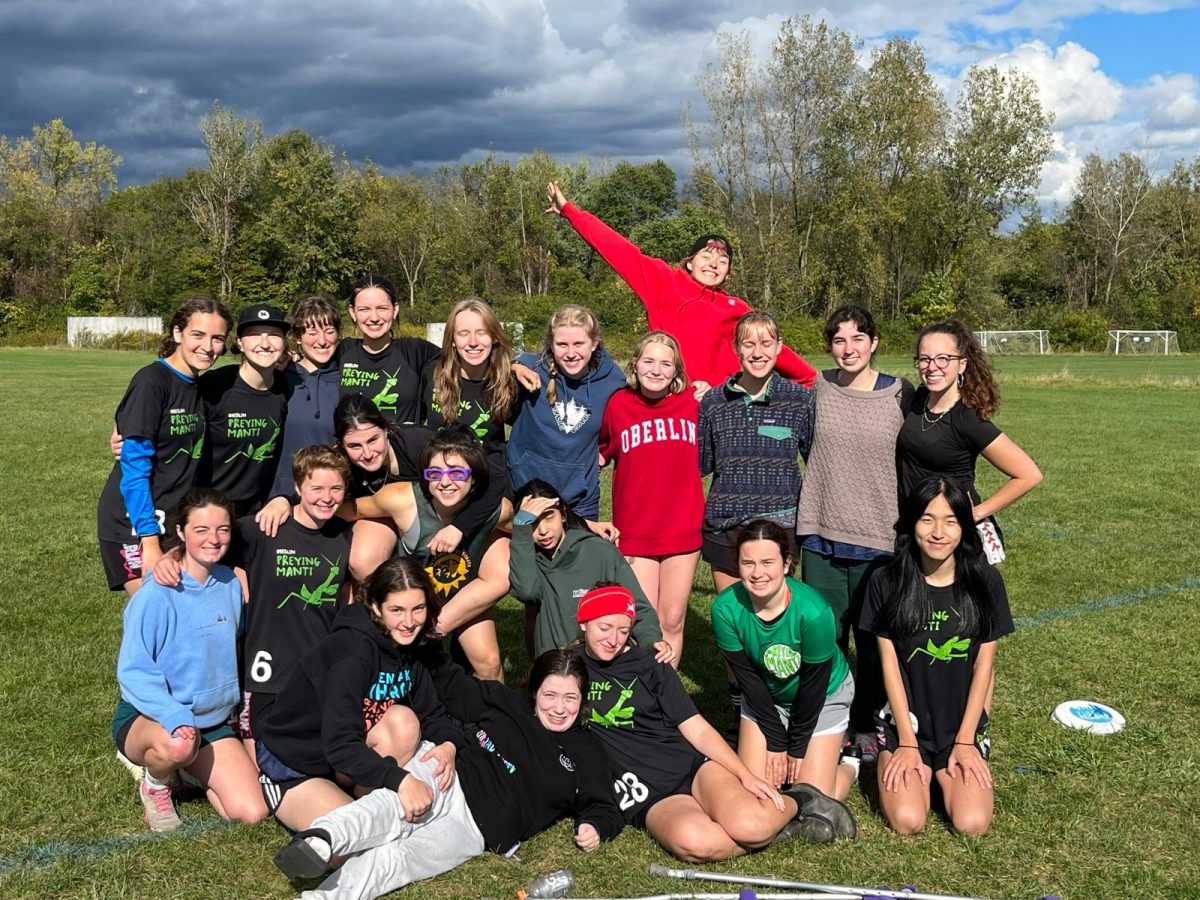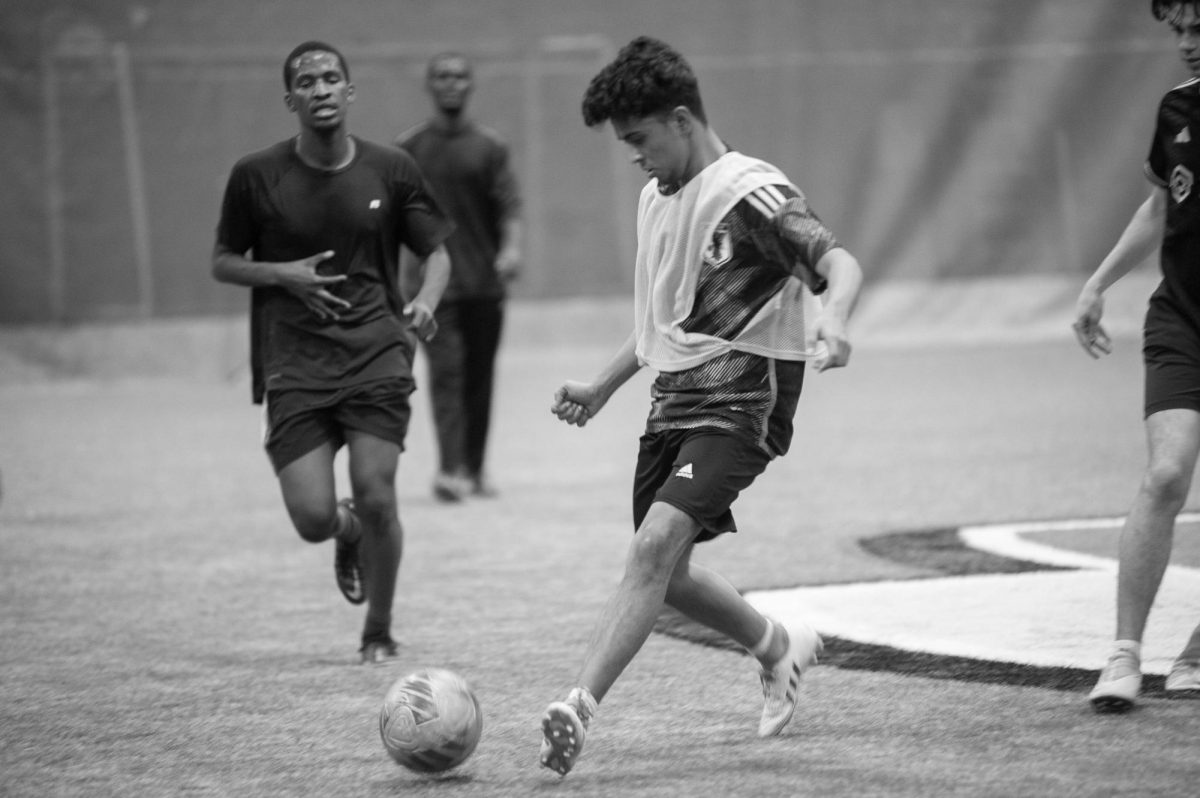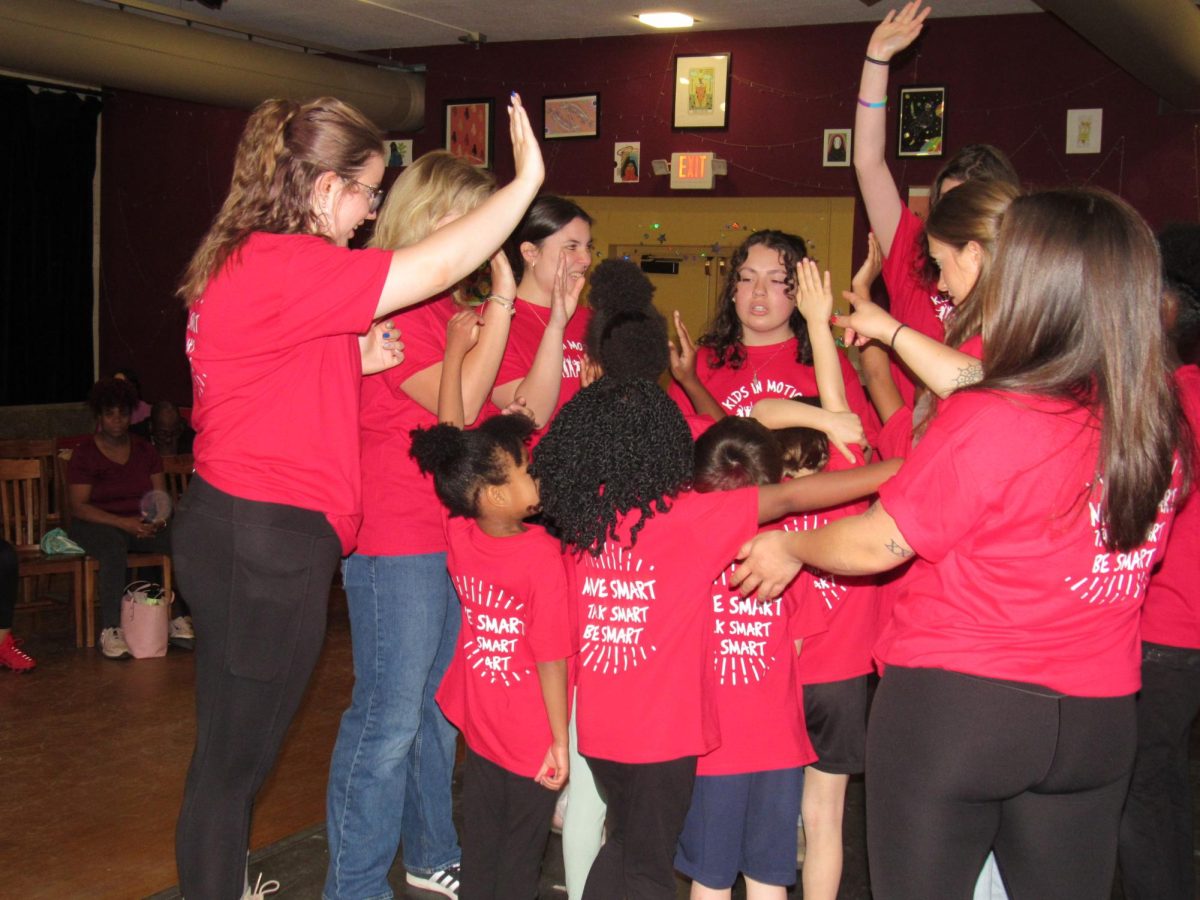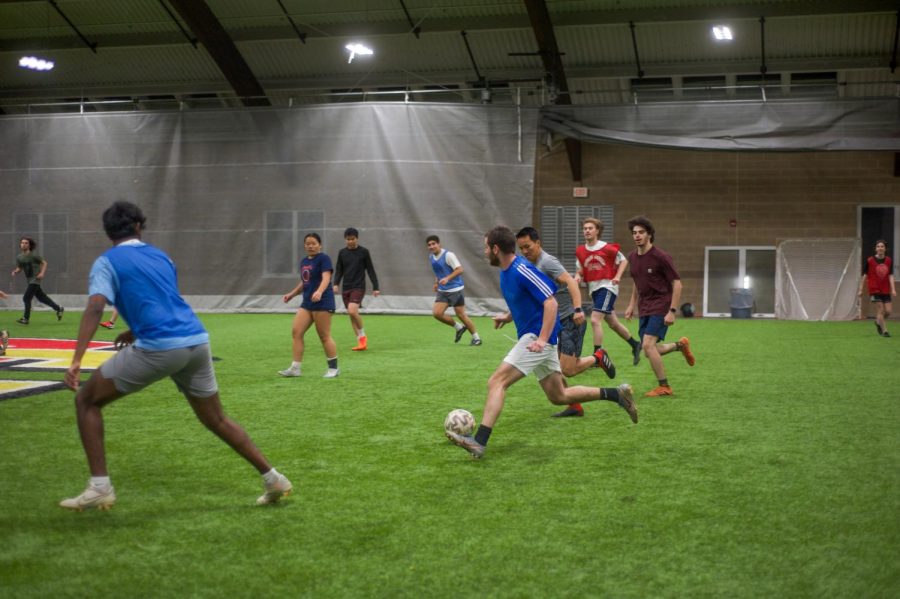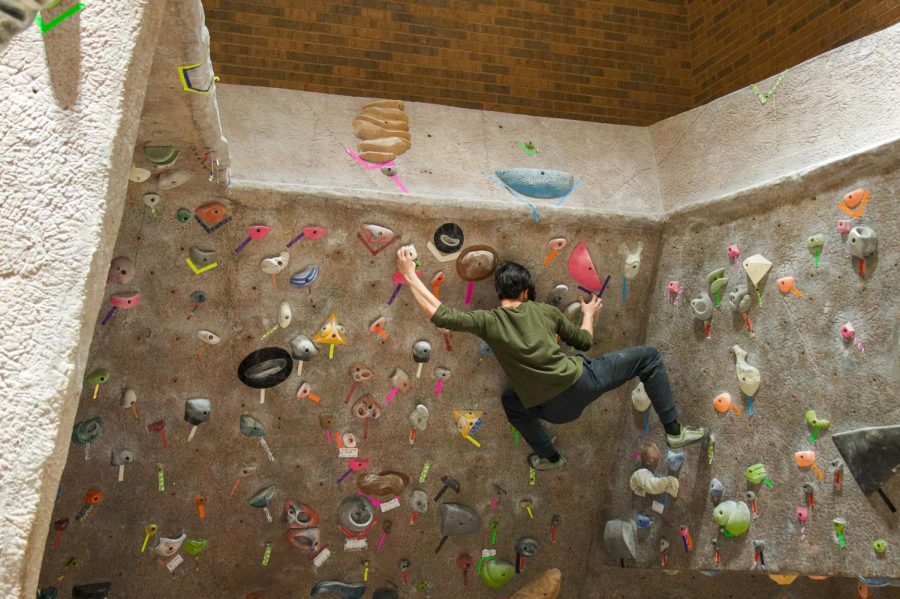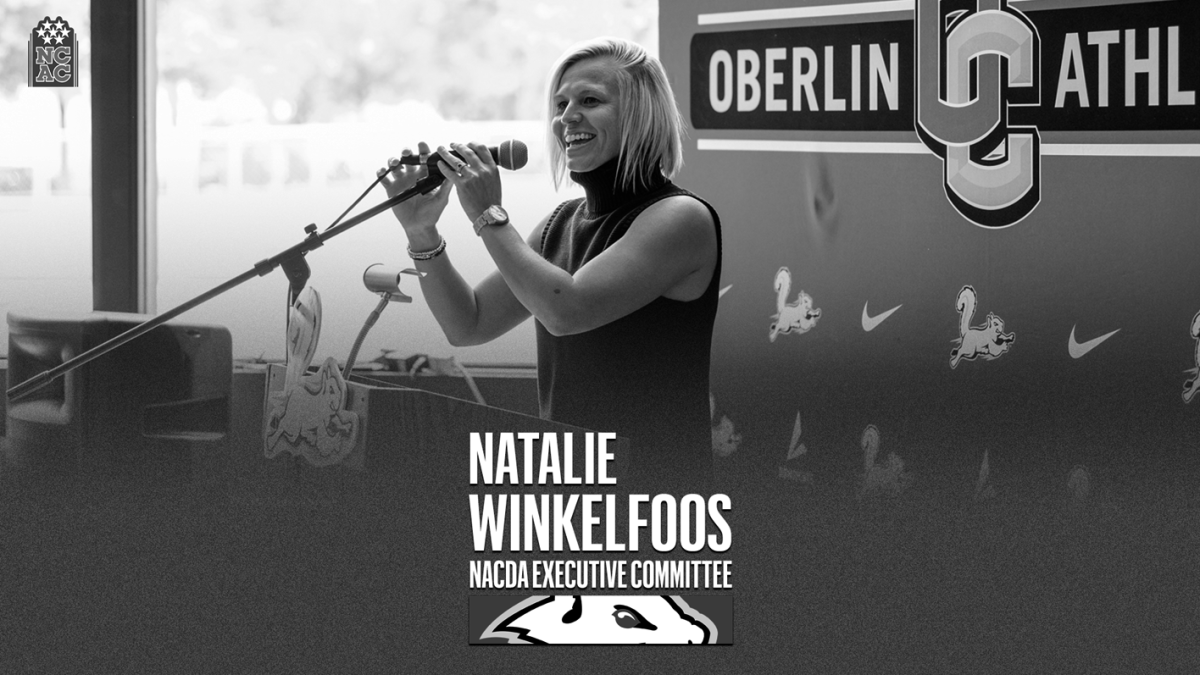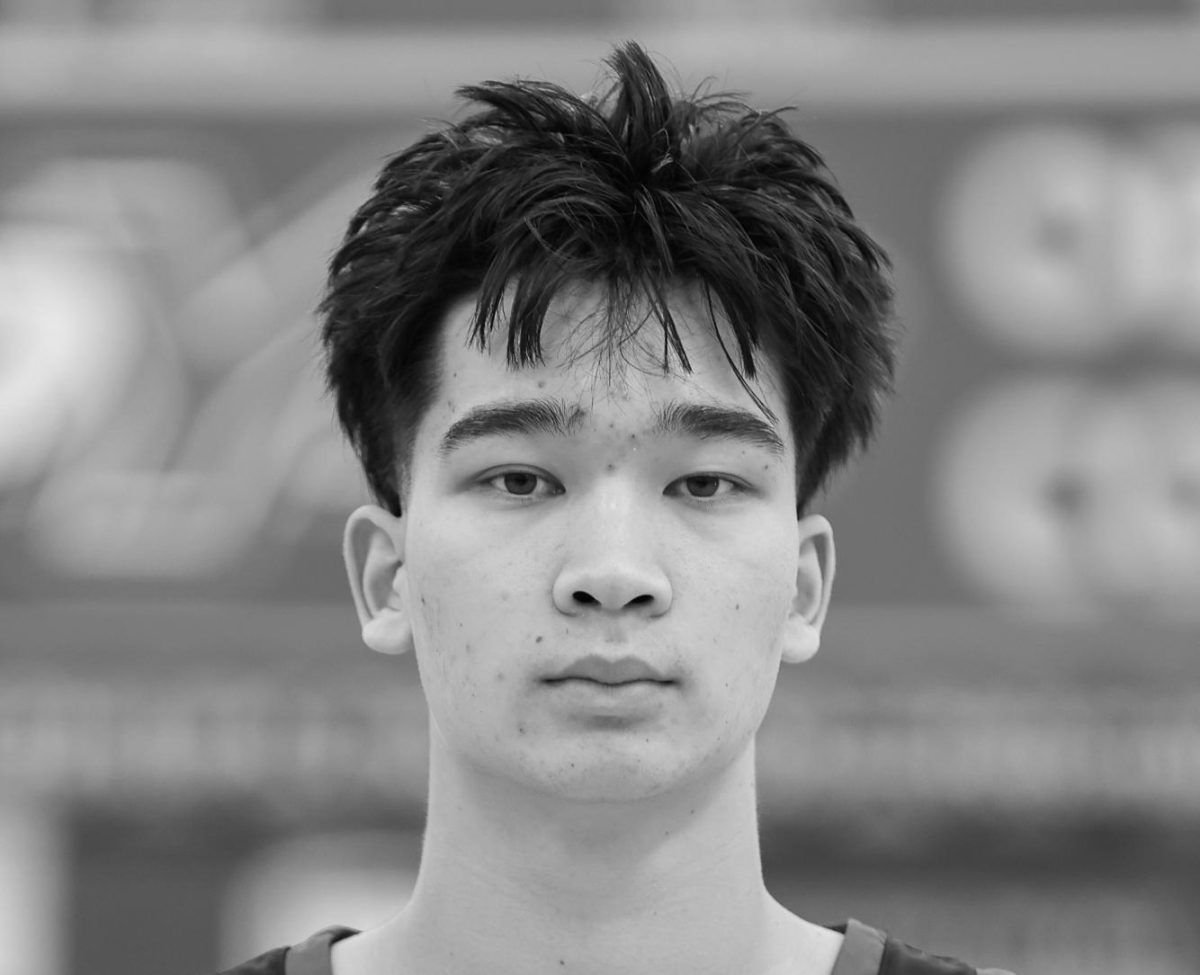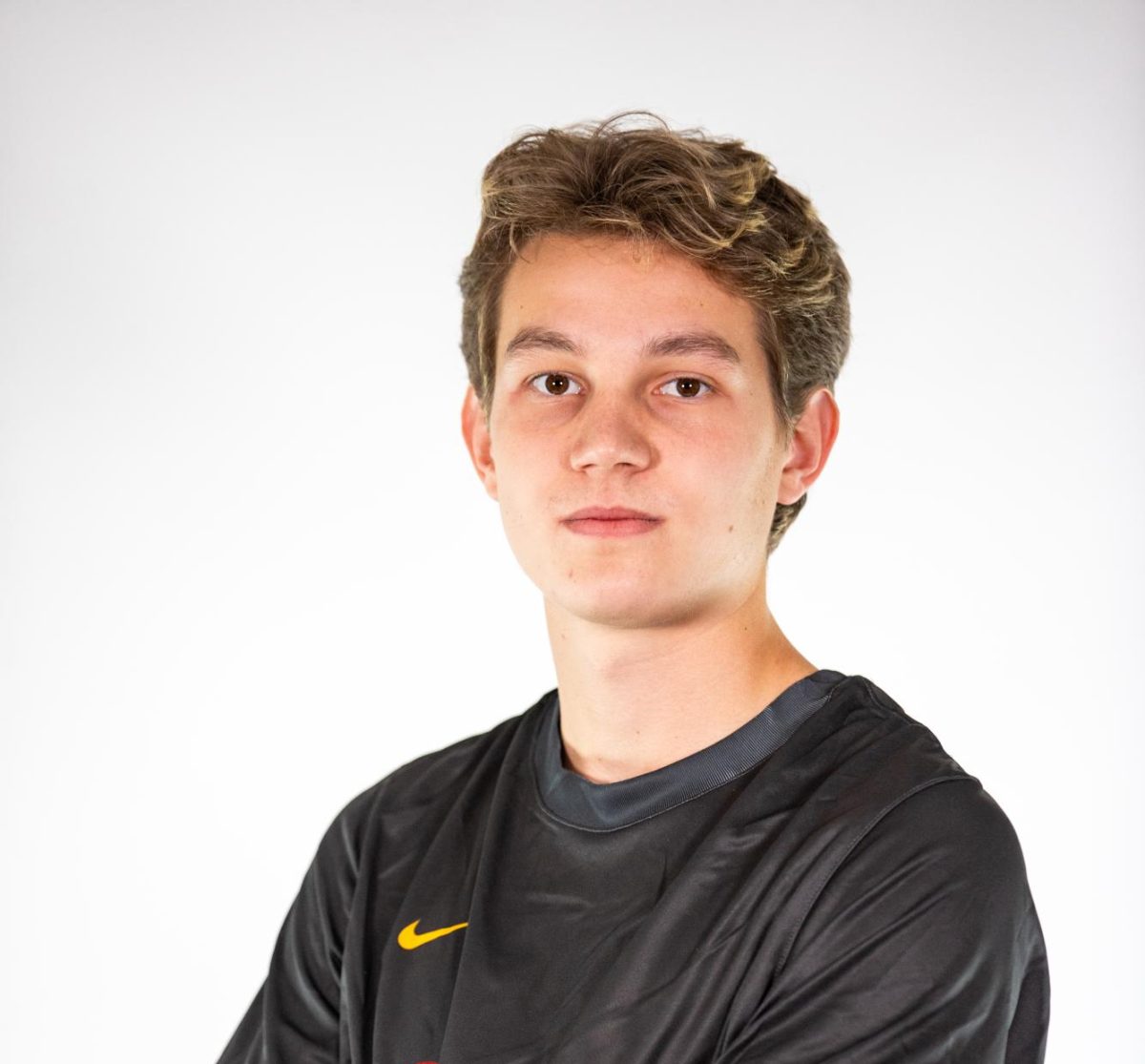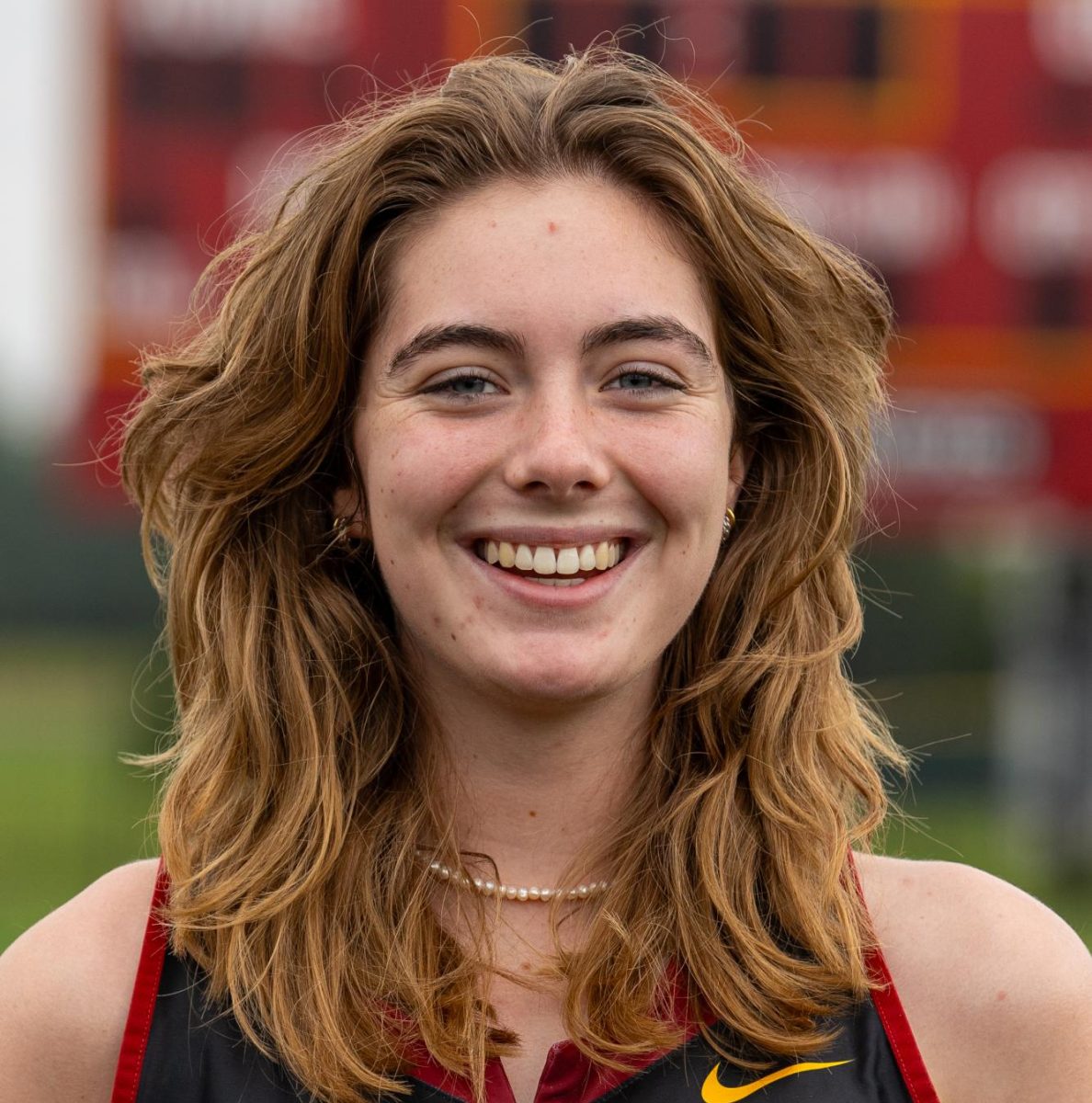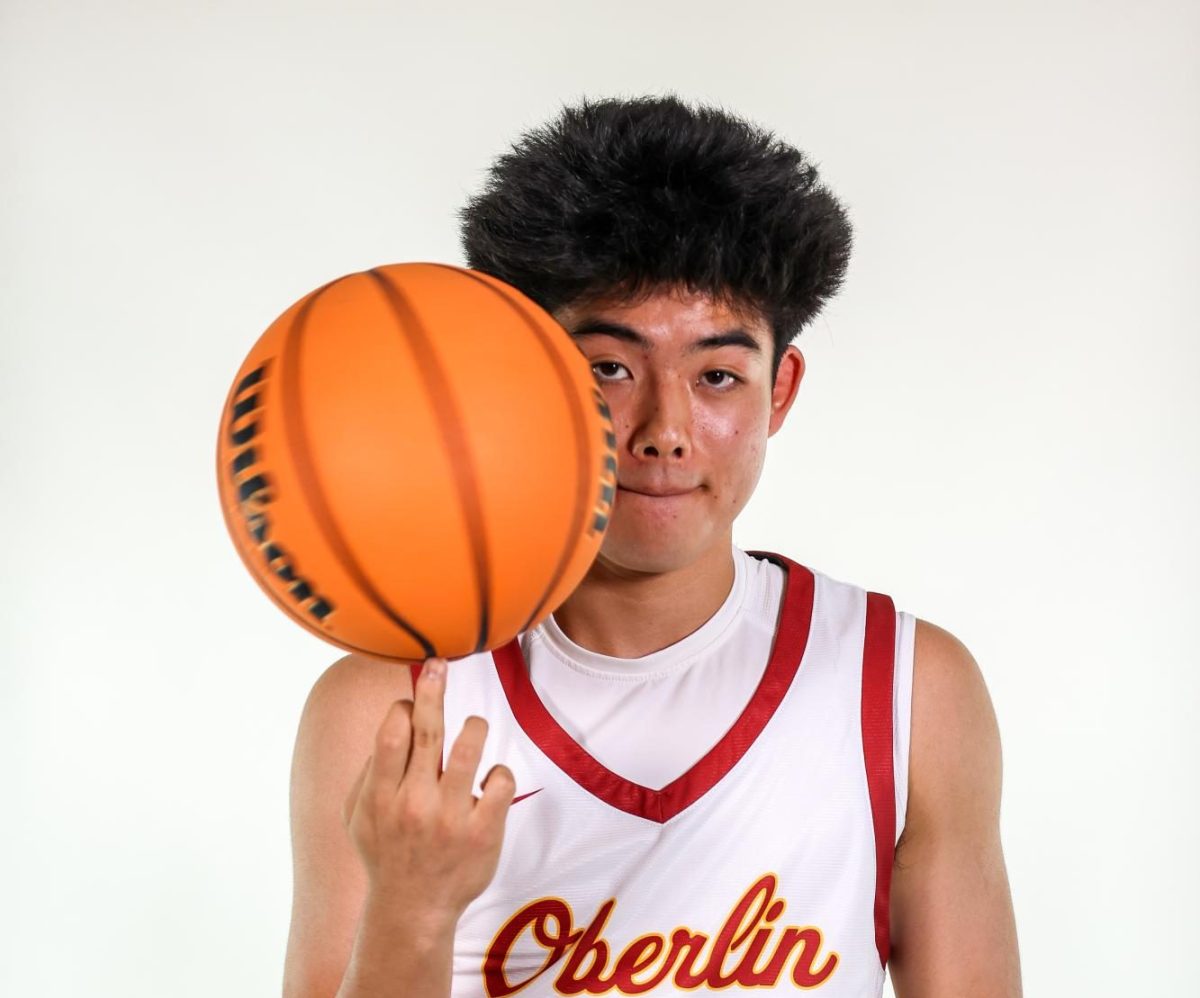Fourth-years Allison Lupatkin and Sumner Wallace both joined the Preying Manti, the women’s and trans ultimate frisbee team on campus, their first year and have been heavily involved since. As they get ready for their first spring tournament in two weeks, they reflect on their last four years with the Manti.
Many Manti come from different backgrounds and levels of frisbee. Lupatkin got started with frisbee her first year at Oberlin. It was fall 2020, during the pandemic, and many first-years were doing outdoor social distancing activities. Her friend group tossed in North Quad, and although she didn’t think much of it at the moment, it later helped her. Lupatkin, having played competitive varsity sports throughout her years in high school, was looking for a club sport or regular athletic commitment when arriving at Oberlin. Her friends spoke highly of the Preying Manti, which led her to attending practices and joining the team. Aside from the Manti, this has led her to playing on club teams and putting in work on her own, such as throwing into a soccer goal at her nearest park. Lupatkin has had experiences on toxic athletic teams in the past, and so she knows how important it is to foster a healthy, collaborative environment — the frisbee team has remained committed to building a group that uplifts and supports each other in a variety of ways, on and off the field.
On the other hand, Wallace has been playing since high school. She described it as a “choir kid to ultimate frisbee pipeline,” as she was in choir and had friends who were on the ultimate team, which led her to joining her high school club team. The Manti’s Division III national title win in 2019 was a major deciding factor in why Wallace chose Oberlin, because she wanted a school with a good frisbee team. There were informal tossing practices in the fall, but once the spring came, Wallace finally could go practice with the team out in the North Campus fields. Since then, Wallace has grown immensely in ultimate. She tracks her progress with frisbee when she visits her friends back home, and her friends would comment on her new tricks.
One of Lupatkin’s favorite memories was playing against Cedarville University at a regionals tournament last spring. The Manti came into the tournament as the fifth seed and this was the third place game. In her time at Oberlin, the Manti have lost to Cedarville eight times. Even though each game got closer to closing the gap, they kept losing.
“No one liked playing them,” Lupatkin said. “We started to become friends with them, get to know them more. We changed up some strategy for that last game, like who was playing on the line at a time, and we won. It was really exciting, and I felt such a payoff of hard work that we put in the effort. This was a team we lost against so many times and now we won. That was a really cool moment.”
One of Wallace’s favorite memories was finally meeting the Horse Cows during her second year because she wasn’t aware that there was another ultimate team on campus. Both the Manti and the Horse Cows went on spring break to the Red River Gorge in Kentucky. They drove up a large hill and played a game of frisbee on the baseball field at the top of the hill.
“Nobody was trying to play baseball at that moment in time,” Wallace said. “We were so close to the sky because we were on this giant hill, and it was beautiful and blue. The wind was blowing in our hair, and we were learning how to lay out for the first time, many of us. It was great and wonderful and bonding.”
Both Lupatkin and Wallace have taken up many roles since joining the team. The team doesn’t have captains, rather, they have 16 different leadership roles. Currently, Lupatkin and Wallace both act as the practice planners, also known as DiscCos. Wallace also did orientation this year, as well as tossing out on North Quad and recruiting people. Lupatkin is a TournamentCo and a rules teacher, teaching new members rules about the game because ultimate frisbee is a self-officiated sport.
“I really appreciate how it gives a lot more people a chance to be involved in a way that works for them,” Lupatkin said. “For instance, we have people on the team, and their way of being involved behind the scenes is running equity classroom sessions or sourcing the snacks we’ll purchase for our tournament, planning team events, planning our spring break trip, planning tournaments. There’s all these different ways that people are engaging in a way that is something they enjoy, which is really cool. Some of the aspects of leadership on this team are things I would never want to do, I would be so horrendous at. But I’m really good at logistics. Tournaments is something that works really well for me because that’s all I think about is very organizationally and logistically.”
The Manti also work with an organization called DiscDiversity, which gives talks about how players can help diversify the sport. They address ultimate frisbee as a predominantly white and privileged sport, and how people can address issues of race and equity on their own team, further situating where they are and acknowledging the context that the sport is in.
“A lot of it definitely stems from work Natalie Soord [OC ’22] did in 2020 after she wrote some articles about the Manti in ways that they had let her down,” Lupatkin said. “A lot of this work can initially be attributed to her and the work she did, but it’s been an ongoing effort to continue it.”
As practice planners, Lupatkin and Wallace lead the Manti team practices throughout the year. People will do their own stretching and tossing before a formal team warm up, which includes a lap around the fieldhouse, stretching, and more running to get from static to dynamic. Then they transition to running through drills that focus on a specific strategy. The practice always ends with scrimmaging and getting in reps of drills they ran. The Manti are coached by Dave Arters, the youth coordinator for Cleveland Ultimate.
One time when the Manti hosted an optional practice, the members who showed up decided to take the big tires that are used for tire flipping, and attempted to throw frisbees through the tire as it rolled across the field house.
“It’s very difficult, and didn’t work very well,” Lupatkin said. “We were working on frisbee, but also just being very silly and goofy with it.”
As a student-run team, it’s up to the leadership committee to coordinate all the tournaments. Tournaments get published on frisbee websites, but often, the Manti are invited to play from emails. The students have to coordinate driving, either using their own cars or school vehicles. They also have to manage booking hotel rooms, though the hotels are paid for by the school. The tournaments are much more concentrated than varsity sports. An average weekend may consist of six to eight games. Saturday consists of “pool play,” which is just playing four games. On Sunday, there’s often a bracket, which can be two to four games depending on how far the Manti get.
Outside of frisbee, their many other extracurricular activities and jobs keep the two busy.
Lupatkin, a Biochemistry major minoring in Jewish Studies and Politics, is currently doing honors research on a chemical method so people can better study how anxiety works. She is also an OWL for bioorganic chemistry, a peer tutor, and a tour guide.
Wallace is a Rhetoric and Media Studies major, which is an individual major she created, and a Chemistry minor. She was also a production editor or, as she calls it, “destroying people’s grammar,” at The Oberlin Review for a few years. Wallace has also written some articles in the past for the Review. She works as a writing and speaking associate, is a Course Writing Associate, and sometimes helps out with ObieSUCC, which is the Stand Up Comedy Coalition.
Both Lupatkin and Wallace plan to continue to play after college. Lupatkin played for club teams the past two summers when she lived in Columbus and Cleveland. She enjoyed the community and even invited some players to celebrate her birthday. Wallace is currently in a winter league in Cleveland and played for a club team in Iowa this summer. Both agree that it is a great way to meet people.
“For most people, their peak ultimate careers happen after college,” Wallace said. “There’s really strong club scenes all around the country. Being on a college team is something special, but this is a sport you can play the rest of your life. Our coach still plays in the Cleveland rec league.”
When asked what advice to give to underclassmen, Lupatkin says to embrace it.
“The culture of ultimate frisbee is very down-to-earth,” Lupatkin said. “It’s very what you want to make of it. It’s really rare. It’s one of those sports where you’ll hit your peak after college.”
Lupatkin also attributes her growth in frisbee to her academic career.
“And a lot of [college] is growing academically, growing as I figure out my career, what I want to do, but also growing into the sport and culture is something that I think has really defined my college experience as well,” Lupatkin said.
For people who don’t play frisbee yet, Wallace recommends trying it out before graduating.
“It’s not like any other, I mean, it is like other sports in some senses if you get down into the nitty-gritty, but throwing a frisbee is not like throwing a baseball or probably anything else you’ve thrown in your life, and it’s pretty exciting,” Wallace said. “It’s a wonderful community and so that’s another great reason to join. Be our friend.”
For the underclassmen frisbee players, Wallace says to stick with it.
“It’s very intimidating to try out a new sport that you’ve never played,” Wallace said. “I certainly have had my fair share of experiences trying out sports and then feeling like I’m really bad at them, but I think if I had given myself a little bit more grace and patience that I could have been just fine at any of them. So give yourself a chance and give frisbee a chance.”


